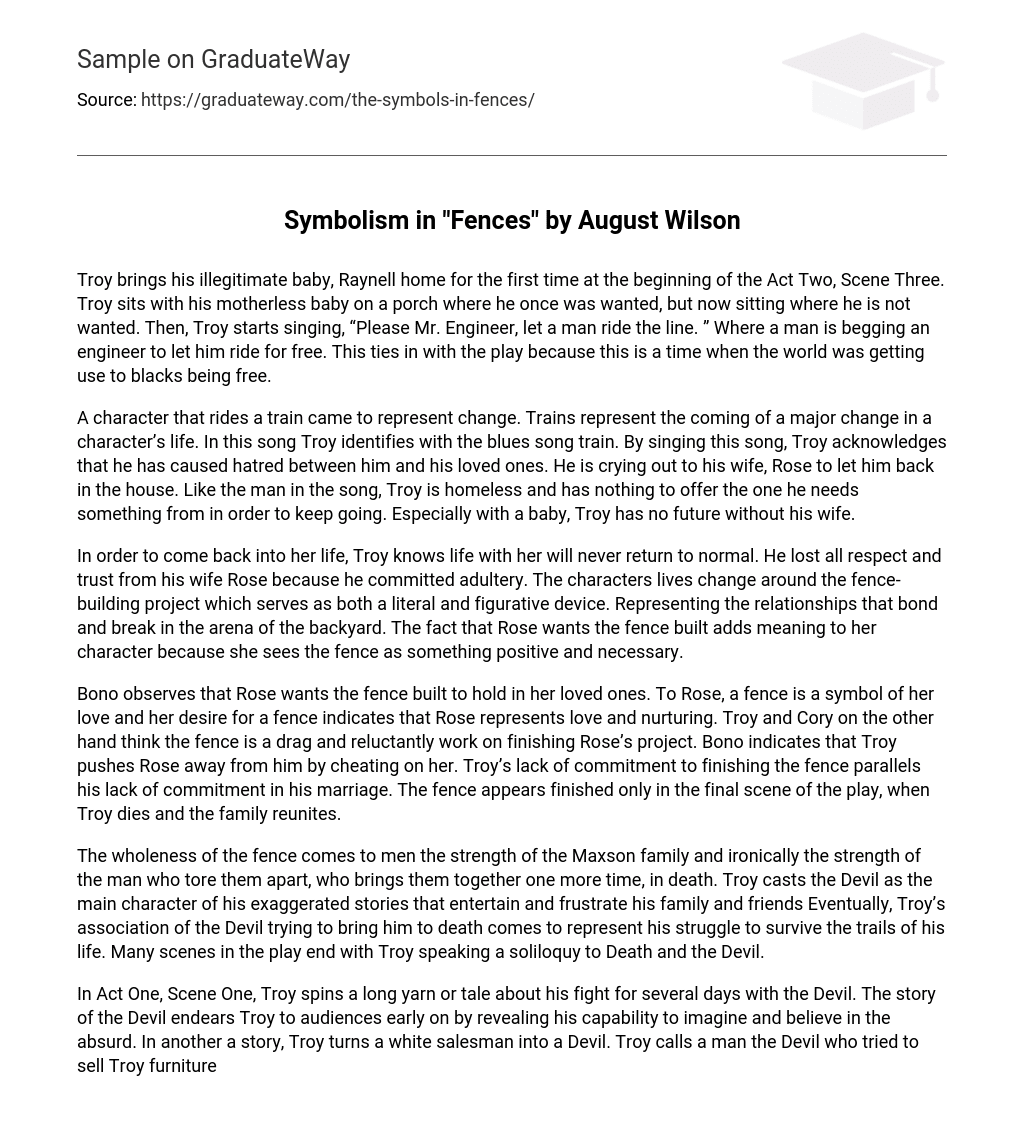Troy brings his illegitimate baby, Raynell home for the first time at the beginning of the Act Two, Scene Three. Troy sits with his motherless baby on a porch where he once was wanted, but now sitting where he is not wanted. Then, Troy starts singing, “Please Mr. Engineer, let a man ride the line. ” Where a man is begging an engineer to let him ride for free. This ties in with the play because this is a time when the world was getting use to blacks being free.
A character that rides a train came to represent change. Trains represent the coming of a major change in a character’s life. In this song Troy identifies with the blues song train. By singing this song, Troy acknowledges that he has caused hatred between him and his loved ones. He is crying out to his wife, Rose to let him back in the house. Like the man in the song, Troy is homeless and has nothing to offer the one he needs something from in order to keep going. Especially with a baby, Troy has no future without his wife.
In order to come back into her life, Troy knows life with her will never return to normal. He lost all respect and trust from his wife Rose because he committed adultery. The characters lives change around the fence-building project which serves as both a literal and figurative device. Representing the relationships that bond and break in the arena of the backyard. The fact that Rose wants the fence built adds meaning to her character because she sees the fence as something positive and necessary.
Bono observes that Rose wants the fence built to hold in her loved ones. To Rose, a fence is a symbol of her love and her desire for a fence indicates that Rose represents love and nurturing. Troy and Cory on the other hand think the fence is a drag and reluctantly work on finishing Rose’s project. Bono indicates that Troy pushes Rose away from him by cheating on her. Troy’s lack of commitment to finishing the fence parallels his lack of commitment in his marriage. The fence appears finished only in the final scene of the play, when Troy dies and the family reunites.
The wholeness of the fence comes to men the strength of the Maxson family and ironically the strength of the man who tore them apart, who brings them together one more time, in death. Troy casts the Devil as the main character of his exaggerated stories that entertain and frustrate his family and friends Eventually, Troy’s association of the Devil trying to bring him to death comes to represent his struggle to survive the trails of his life. Many scenes in the play end with Troy speaking a soliloquy to Death and the Devil.
In Act One, Scene One, Troy spins a long yarn or tale about his fight for several days with the Devil. The story of the Devil endears Troy to audiences early on by revealing his capability to imagine and believe in the absurd. In another a story, Troy turns a white salesman into a Devil. Troy calls a man the Devil who tried to sell Troy furniture in exchange for monthly payments by mail. Rose explains why Troy invents stories about the Devil. Anything you don’t understand, you call the Devil.





